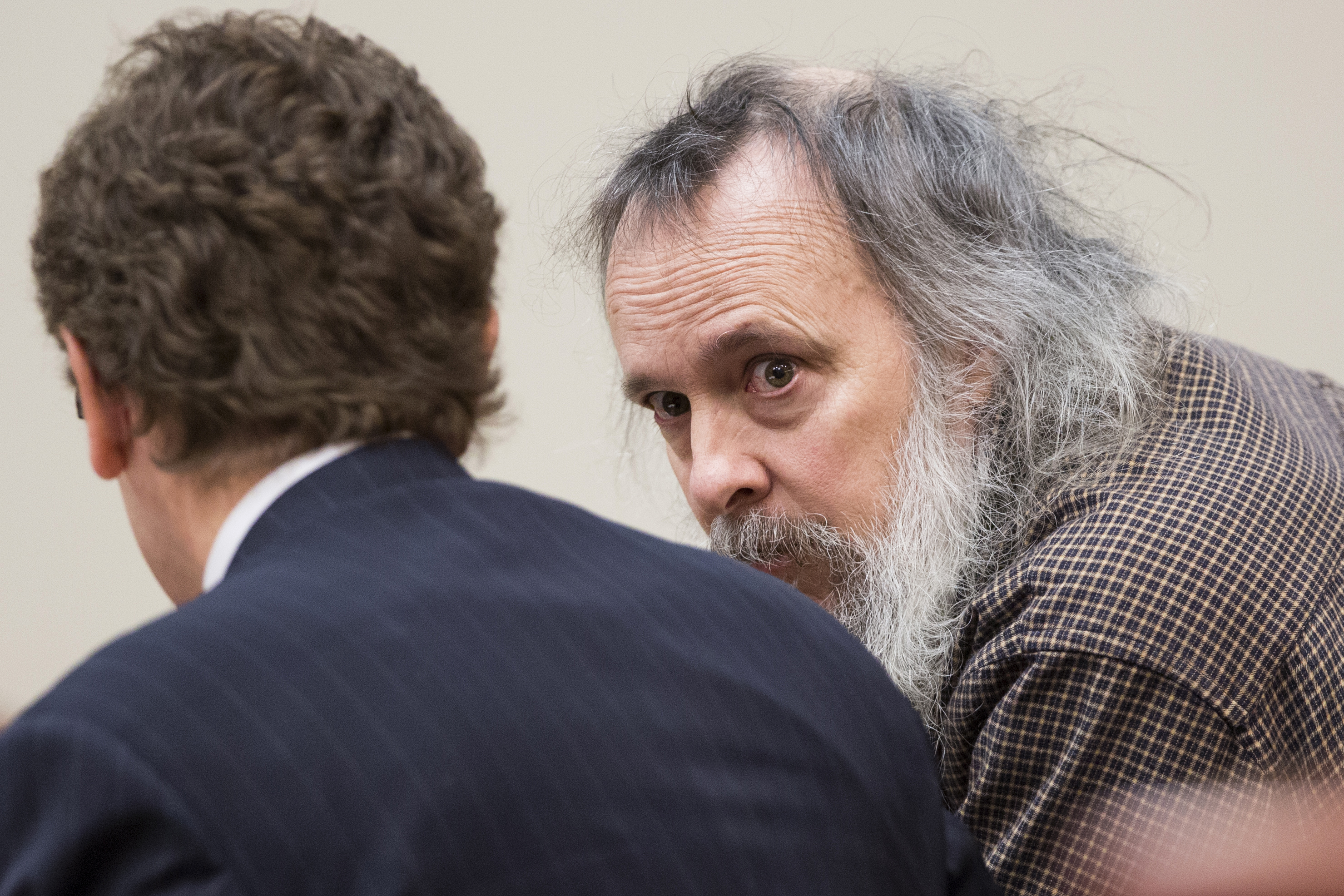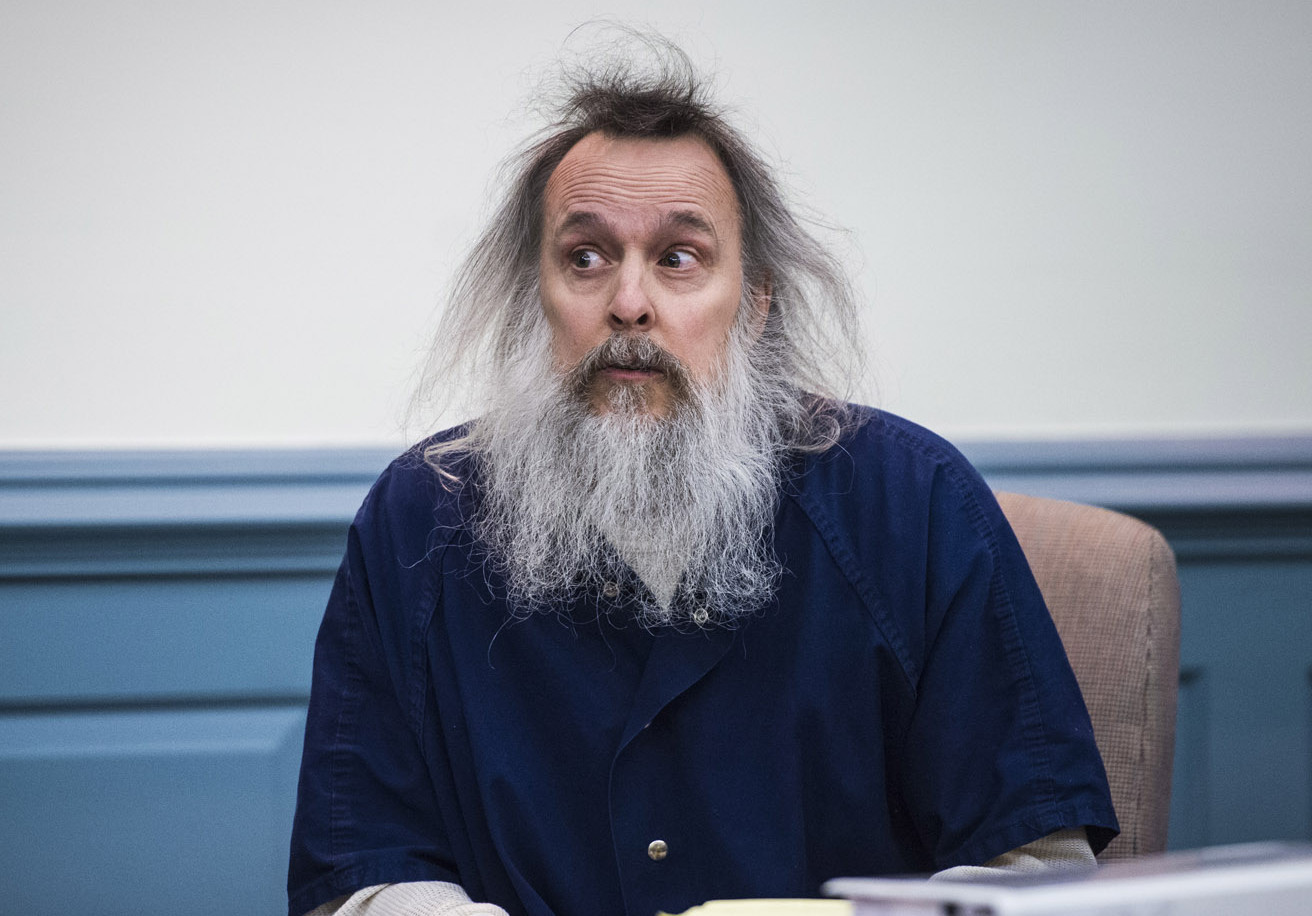FAIRFAX, Va. – “Introduce murder into a safe and secure neighborhood.”
This is one expert from the often violent writings of a man prosecutors portray as consumed by hatred and disgust, a man who intended to murder Ruthanne Lodato, Ron Kirby and Nancy Dunning, read to the jury during the ongoing trial of Charles Severance.
On the eve of resting its case against Severance, prosecutors called Alexandria Police Detective Sergeant David Cutting to the stand and asked him to read what amounted to 20 minutes of excerpts from Severance’s writings, seized in search warrants.
Many of the writings were dated by hand, the electronic postings were time-stamped, and they seemed to be presented in a way to chronicle Severance’s growing disgust and a mounting intensity in their nature.
Commonwealth’s attorney for Alexandria Bryan Porter led Cutting through the dozen or so early entries, asking him to read a few lines from a letter Severance wrote to his son Levite in 2001. Severance implies to his son that their shared enemies will receive punishment. In 2005, he tells his son that he’s succeeding in the war.
Severance is not a veteran so the listener was left to take that statement to mean a personal war. His son’s mother testified she found the letters Severance sent “threatening and frightening.”
Porter then turned to notations made by Severance in an online account he maintained through Disqus.com, a website which lets users comment on news articles.
On June 12, 2013, Severance wrote using his account, “I feel like discharging a firearm,” and, “scalping privileged members of the enforcement class, honoring family, settling old scores.”
The defense has previously pointed out none of the 2,000 pages of writings name a victim, a victim’s family member or seem to target a specific group in general. Police, social workers and “elites” are often described with disdain by Severance in his writings, presented to the jury in four binders for them to look through.
Severance’s defense team also has argued that the writings include loving passages about Severance’s son, details and notes for games he developed as well as historical references and research.
The passages quoted in court jumped from letters in 2005 to the online postings in 2013, the year of Ron Kirby’s homicide, and beyond.
Cutting read portions of emails from Severance’s personal account dated July 2013 through mid-September of that year:
“I’ve been nudging and trolling for over a decade and no one has noticed. Violence wins.”
“No self respecting patriarch would not murder an adversary who crosses the family.”
“Violence wins. Let that be a lesson to all members of the enforcement class.”
Severance’s journal was taken into evidence, as was his Bible, in which he had several handwritten notations. Investigators also seized multiple composition books from his red Ford Escort when he was arrested in Wheeling, West Virginia.
Porter asked Cutting to read a note inside a book dated roughly a month before Kirby was killed:
“Introduce murder into a safe and secure neighborhood. It shudders with horror. Do it again and again and again.”
While it was clear in pretrial motions that the prosecution planned to use Severance’s words against him, it was unclear how they would work into the presentation of evidence.
Porter chose to deliver them one by one, in succession to the jury, closing with “the parable of the knocker,” which eerily describes the manner in which Dunning, Kirby and Lodato were killed at their front doors.
“Knock. Talk. Enter. Kill. Exit.”
Prosecutors say Severance was motivated by hate of law enforcement and the courts and that he sought revenge against those he considered part of Alexandria’s ruling elite for losing custody of his son.
The defense will have its opportunity to cross-examine Cutting on the stand Wednesday morning.
WTOP is following Severance’s trial from inside the courtroom. Visit our liveblog to see previous coverage.








